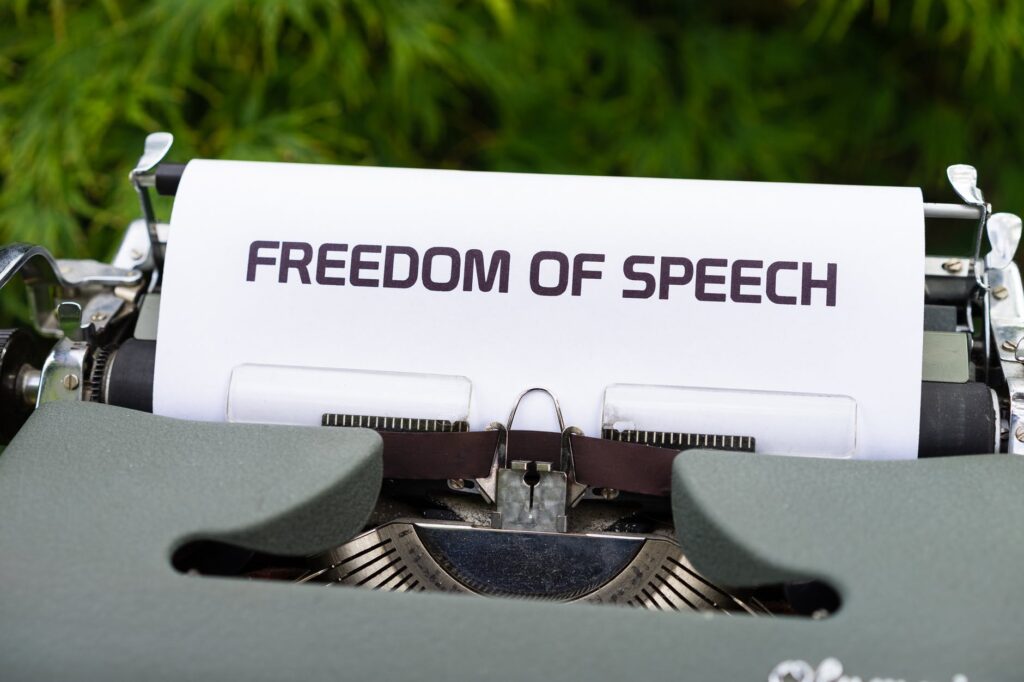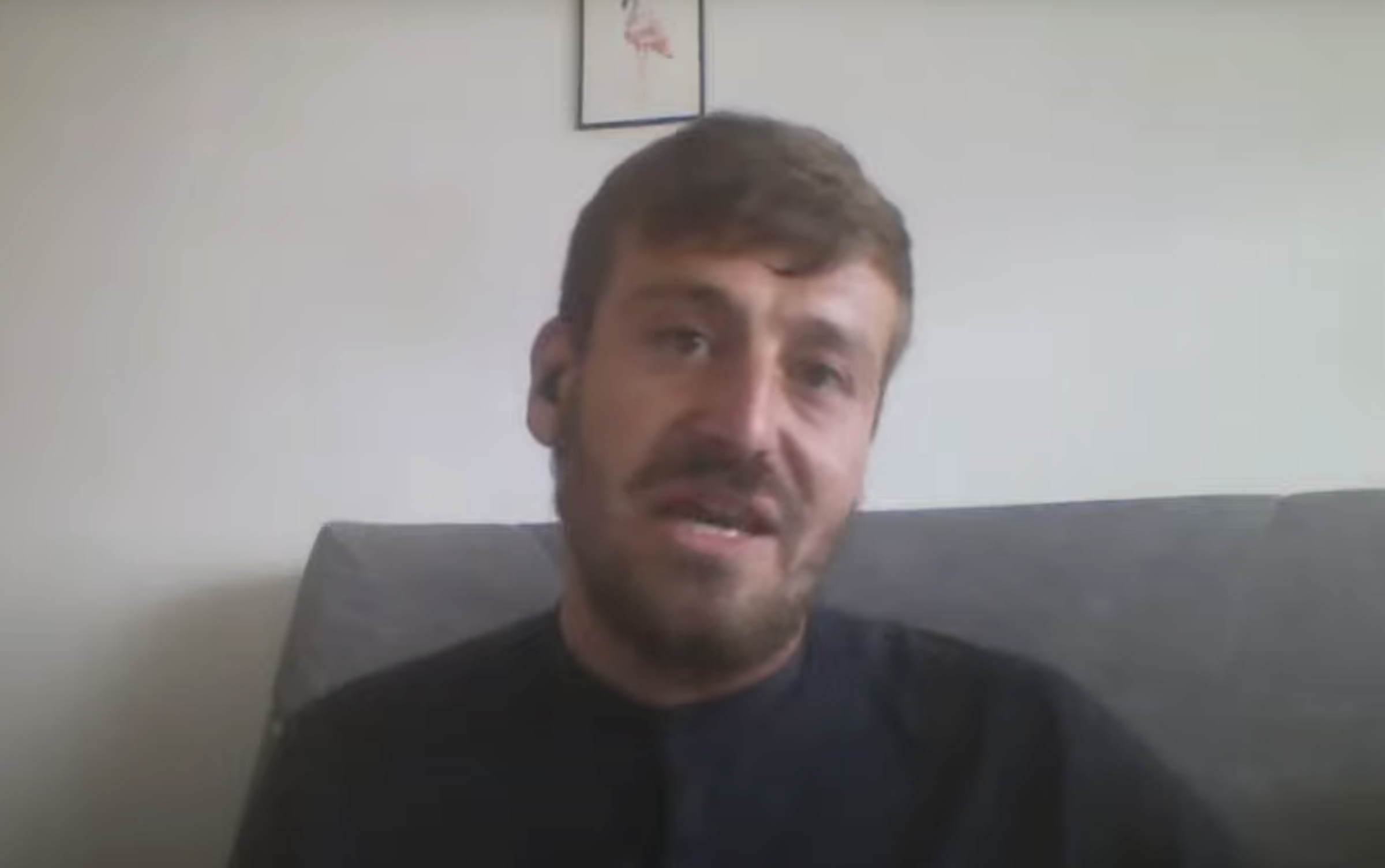
By Kevin Gosztola, The Dissenter, 5/31/23
Kit Klarenberg, a British journalist previously published by The Dissenter, was detained and interrogated by British counter-terrorism police when he arrived at the London Luton Airport on May 19.
Police were particularly interested in his reports for The Grayzone and seized his electronic devices.
The incident was reported by The Grayzone, where Klarenberg regularly covers the British military and security services and their influence over media organizations in the United Kingdom.
Klarenberg was traveling from his home in Belgrade, Serbia, to visit family and friends. He was surrounded by police and issued a “Notice of Detention under Schedule 3 to the Counter-Terrorism and Border Security Act 2019” after he exited the airplane.
Under the notice, police required Klarenberg to answer questions from police, provide any information that was requested, including PINs and passcodes to his electronics, declare whether he had any documents “of a kind specified” by police, and cooperate with any searches of his person or property.
Police also instructed Klarenberg to refrain from obstructing or interfering with officers as they took photographs, fingerprints, and DNA samples, which were authorized by the police superintendent. If he failed to comply, he was told that he would face prosecution.
The Grayzone posted a “communique” from a British police detective on July 27, 2022, which had notified Klarenberg of an investigation into “allegations” that related to “offenses of harassment, malicious communication and offenses under the computer misuse act.”
The “communique” was a response to Klarenberg’s reporting on anonymously leaked emails and documents that detailed U.K. intelligence-linked plots against academics and journalists, including The Grayzone.
Although Klarenberg was later notified by the Metropolitan Police that the matter was closed and he would not be arrested if he “attended” the U.K. in the future, that notification prepared him to anticipate potential harassment when he traveled.

Police in the U.K. “demanded to know why Klarenberg lived in Serbia,” according to Grayzone founder Max Blumenthal. They wanted to know the names of websites that published his journalism, and they were primarily focused on his work for The Grayzone.
Klarenberg was asked how much The Grayzone paid him, “how often, and into which bank account.” He was asked who owned the site and how regular his interactions were with Blumenthal.
Detractors have repeated a range of unproven and false claims about The Grayzone, where they allege that the website receives “opaque” funding and so Blumenthal must be receiving support from within Russia when considering how United States foreign policy is covered.
Naturally, that inspired the counter-terrorism police to ask if The Grayzone had some “agreement” with “Russia’s Federal Security Bureau (FSB) to publish hacked material.” They wanted to know if Klarenberg had any contact with “FSB operatives” or if he was in contact with “current or former personnel of Russian state media.” They even explicitly asked if The Grayzone was “sponsored by Russia.”
“Throughout the interview, the counter-terrorism police probed Klarenberg aggressively on his political affiliations and beliefs,” Blumenthal added. “Was he involved in any activist causes in Belgrade? What did he think of the Russian government? Did he have an opinion on Russia’s arrest of Evan Gerskovich of the Wall Street Journal? What did he think of Rishi Sunak? One officer complained incessantly about Keir Starmer being ‘useless,’ prompting Klarenberg to wonder if the comments were a dangle aimed at drawing him out.”
The U.K. government amended their terrorism law in 2019 to grant police new powers to “stop, question, search, and detain a person at a U.K. port or the Northern Ireland border area.” Police were authorized to use the powers to determine “whether a person appears to be someone who is or has been in engaged in hostile activity.”
If the police decide under Schedule 3 that a person, like Klarenberg, presents some type of “counter-terrorism” threat, they are supposed to notify the person that they are now being questioned under Schedule 7 of the U.K.’s terrorism law, which was adopted in 2000. (It does not appear Klarenberg was ever questioned for a “counter-terrorism purpose.”)
***
British counter-terrorism police invoked Schedule 7 in April when they questioned and arrested French publisher Ernest Moret, the foreign rights manager for Editions La Fabrique, after he arrived in London on to attend the London Book Fair.
Police detained Moret and demanded that he give authorities his phone and pass codes. They asked him about his involvement in protests against pension reform in France. When he refused to share his pass codes, officers arrested Moret for “obstruction.”
Verso Books senior editor Sebastian Budgen told The Nation Magazine that British officers “threatened [Moret] saying he would never be able to travel again because he’d be labeled a terrorist.” Authorities also “boasted that the UK’s the only country where authorities can download and keep information from private devices.”
Officers seized Moret’s computer and phone. Although he was released after authorities jailed him overnight, he was threatened with prosecution.
Similarly, police seized a tablet, two memory cards, and an “old SD card, mostly containing music,” from Klarenberg. Everything but the SD card was returned a week later, and Klarenberg was informed that he remains under investigation.
Natasha Hakimi Zapata wrote in the same article for The Nation, “The Terrorism Act of 2000, passed prior to the September 11 attacks under Labour Prime Minister Tony Blair’s government, is indeed one of the most far-reaching anti-terrorism laws in Europe—if not the world.”
“While application of the law has been found to disproportionately discriminate against people from marginalized ethnicities and religions—especially Muslims, in the wake of September 11—Brazilian politician David Miranda was detained for nine hours at London’s Heathrow Airport in 2014. Miranda was carrying sensitive data from NSA whistleblower Edward Snowden to his partner, journalist Glenn Greenwald, and—just as in Moret’s case—Schedule 7 of the 2000 act was cited.”
“Both Britain’s High Court and Court of Appeal have maintained that the stop was ‘lawful’ because of ‘pressing national security concerns,’ despite also admitting that it was ‘an indirect interference with press freedom,’” Zapata added.
WikiLeaks founder Julian Assange has been detained by the U.K. government at the behest of the U.S. government for over 4 years. The U.S. government is prosecuting him for journalism that he produced back in 2010 and 2011.
His wife Stella Assange highlighted the incidents against Klarenberg and Moret and warned journalists and publishers who travel to the UK: “Expect to be interrogated at the border and charged under terrorism legislation in relation to your publishing activity.”